Iolanta, the blind daughter of the King of Provence, is telling her nurse, Martha, that she is full of some unknown longing. Iolanta's friends, Brigitte and Laura, try to cheer her up by singing songs and bringing her flowers. Martha also tries to comfort Iolanta by singing her favorite lullaby. This sends Iolanta to sleep.
Enter Alméric, King René's sword-bearer. He informs the castle porter, Bertrand, that very soon the King will be arriving with a famous Physician who, it is hoped, will cure Iolanta's blindness. The trumpets sound, announcing the arrival of the King. King René enters accompanied by the Moorish Physician, Ibn-Hakia. The King explains that Iolanta has been betrothed from infancy to Robert, Duke of Burgundy, and is soon to marry him, but the Duke does not know that his future wife is blind. Indeed, Iolanta herself is totally unaware of her misfortune. Iolanta has been brought up by her father in this remote castle. He surrounded her with loyal retainers and forbade them on pain of death to tell her the truth. Ibn-Hakia says that the only hope for Iolanta is to inform her of her disability and then, so long as she passionately wishes to recover her sight, she will do so. King René is full of doubts and fear for his daughter's future.
Robert, Duke of Burgundy, and his friend Count Vaudémont, appear. They are impressed to find a beautiful garden in such a wild, remote spot. They are, however, puzzled to see a notice which threatens with death anyone entering it without permission. Robert is downhearted for he is soon to be united in matrimony with some Iolanta whom he has never met, while his heart already belongs to another.
A girl appears on the terrace. Vaudémont is struck by her beauty. Hearing unfamiliar voices, the girl, who is in fact Iolanta, suggests to the strangers that they rest under the shade of the trees and hurries off to fetch them some wine. Robert does not trust the stranger and decides to leave. Vaudémont enchanted by Iolanta's beauty and stays behind. When Iolanta returns he tells her of the great impression she has made on him and asks her to pick him a red rose in memory of their meeting. Iolanta hands him a rose, but it is a white one. Vaudémont repeats his request and again he is given a white rose. He begins to suspect something is wrong with the girl. To make sure, he picks a bunch of roses and asks Iolanta to tell him how many flowers there are in the bunch. Iolanta explains that to count them she needs to touch each flower. Vaudémont realizes that Iolanta is blind and tells her so. He starts to describe to her the wonders of God's world which she is destined never to see, but Iolanta argues that eyesight is not necessary to appreciate the beauty of the world.
Voices are heard: the King enters, followed by Physician Ibn-Hakia and servants. René is horrified when he learns that Vaudémont has told Iolanta of her disability and finally suggests that she should try Ibn-Hakia's course of treatment. Iolanta remains indifferent to the idea which makes the Physician lose all hope. Noticing that Iolanta is very much taken by Vaudémont, King René tells Vaudémont that he will be executed unless his daughter recovers her sight. Iolanta then begs the Physician to cure her.
A fanfare of trumpets announces the arrival of the Duke of Burgundy who, with a group of armed knights, is hurrying to the rescue of his friend. Robert is amazed to see King René. Vaudémont confesses to Robert that he is in love with Iolanta, the latter’s betrothed, and asks him to tell the King that he, Robert, has given his heart to someone else. René consents to the marriage of Iolanta and Count Vaudémont. Shouts of joy are heard, and Iolanta, who has recovered her sight, appears at the castle door. Overjoyed, King René hurries to embrace his daughter and then leads Vaudémont up to her. Everyone gives passionate thanks to God for her recovery.
Time: 15th century
Place: Mountains of southern France
Scene 1
Princess Iolanta has been blind from birth. No one has ever told her (nor does she know) that she is a princess. She lives in a beautiful enclosed garden on the king's estate, secluded from the world, in the care of Bertrand and Martha. Her attendants bring flowers and sing to her. She declares her sadness, and her vague sense that she is missing something important that other people can experience. Her father, King René insists that she not discover she is blind, or that her betrothed, Duke Robert, find out about this.
Scene 2
After announcing the king's arrival, Alméric is warned by Bertrand not to speak of light with Iolanta or to reveal that Iolanta's father is the king. The king arrives with Ibn-Hakia, a famed Moorish physician who states that Iolanta can be cured, but the physical cure will only work if she is psychologically prepared by being made aware of her own blindness. Ibn-Hakia sings the monologue "Two worlds", explaining the interdependence of the mind and the body within the divinely ordained universe, which merges spirit and matter. The king refuses the treatment, fearing for Iolanta's happiness if the cure should fail after she has learned what she is missing.
Scene 3
Robert arrives at the court with his friend Count Vaudémont. Robert tells Vaudémont that he wishes to avoid the marriage as he has fallen in love with Countess Matilde. He sings of his love in his aria "Who can compare with my Mathilde" (Кто может сравниться с Матильдой моей). Vaudémont finds the entrance to Iolanta's secret garden, ignoring the sign which threatens death to anyone who enters. He sees the sleeping Iolanta, without realising who she is and instantly falls in love. Robert, astounded by his friend's behavior, is convinced she is a sorceress who has bewitched Vaudémont. He tells him to leave, but Vaudémont is too entranced. Robert departs to bring troops to rescue him. Iolanta awakes and Vaudémont, who asks her to give him a red rose as a keepsake, realizes she is blind when she twice offers him a white one. She has no concept of light, vision or blindness. They fall in love, after he explains light and color to her.
Scene 4
The couple are discovered by the king. Vaudémont pledges his love, whether Iolanta is blind or not. Ibn-Hakia tells the king that as Iolanta is now aware of her blindness, the treatment might be a success. Iolanta who has no will to see, is unsure therefore whether she should agree to treatment or not. Ibn-Hakia points out that the lack of will proves that, without inner desire, change cannot take place.
After Vaudémont admits seeing the warning sign at the garden entrance, the furious king threatens to execute him for revealing the truth to Iolanta. He tells Iolanta Vaudémont will die if the physician fails to restore her sight, in the hope that this will restore her will. Iolanta is horrified, and agrees to the treatment. After Ibn-Hakia leaves with Iolanta, the king explains to Vaudémont that he was feigning in order to motivate Iolanta. Robert returns with his troops. He admits to the king he has fallen in love with another, but is still willing to go ahead with the agreed marriage. The king cancels the wedding contract, and gives Iolanta to Vaudémont. Ibn-Hakia and Iolanta return. The treatment has worked and Iolanta can see. At first uncertain of her new gift, she eventually sings of the magical new world now visible to her. The court rejoices.


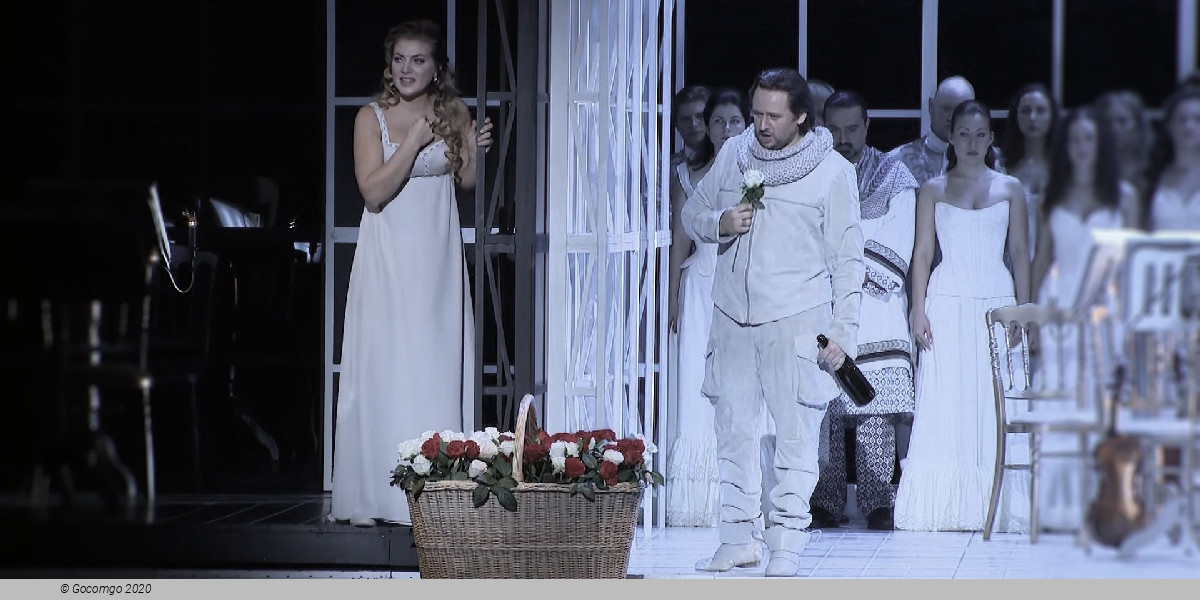
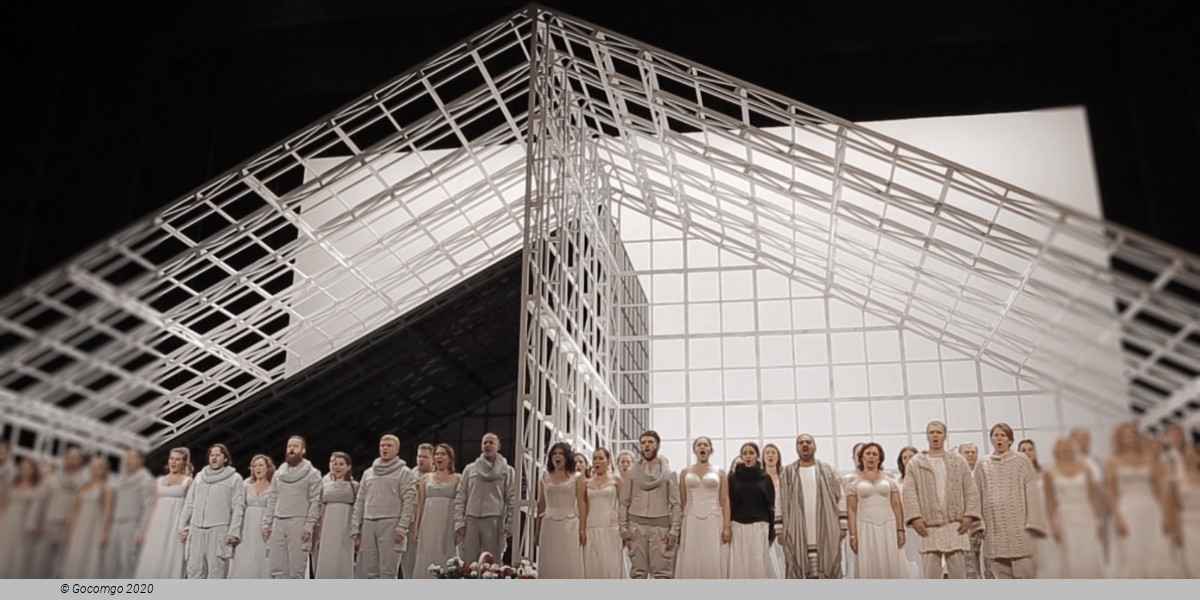
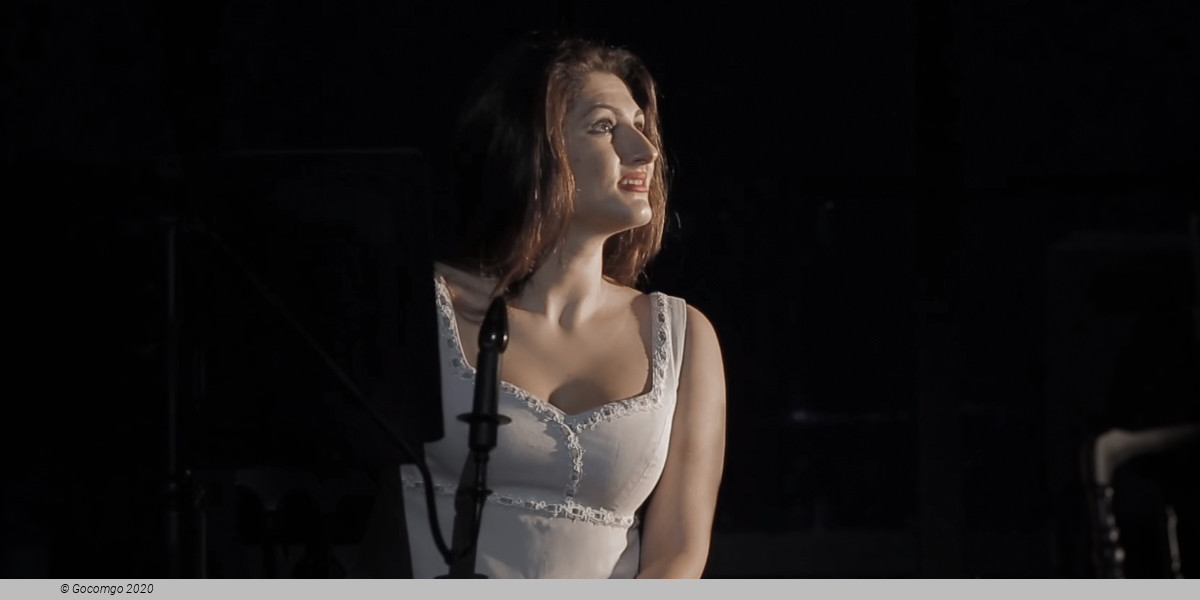
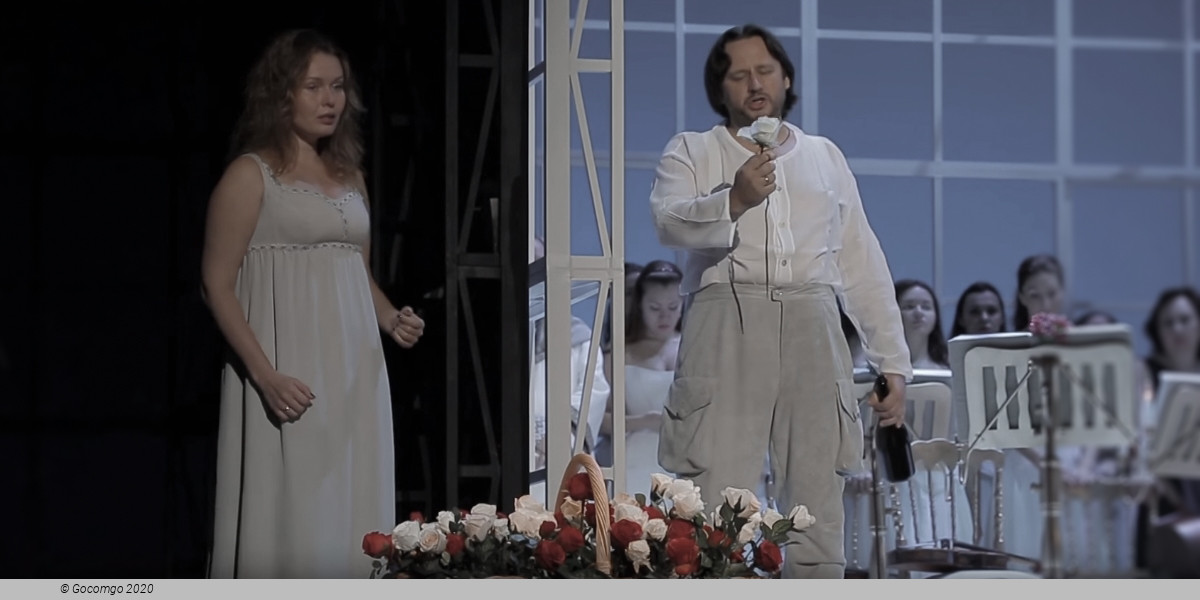
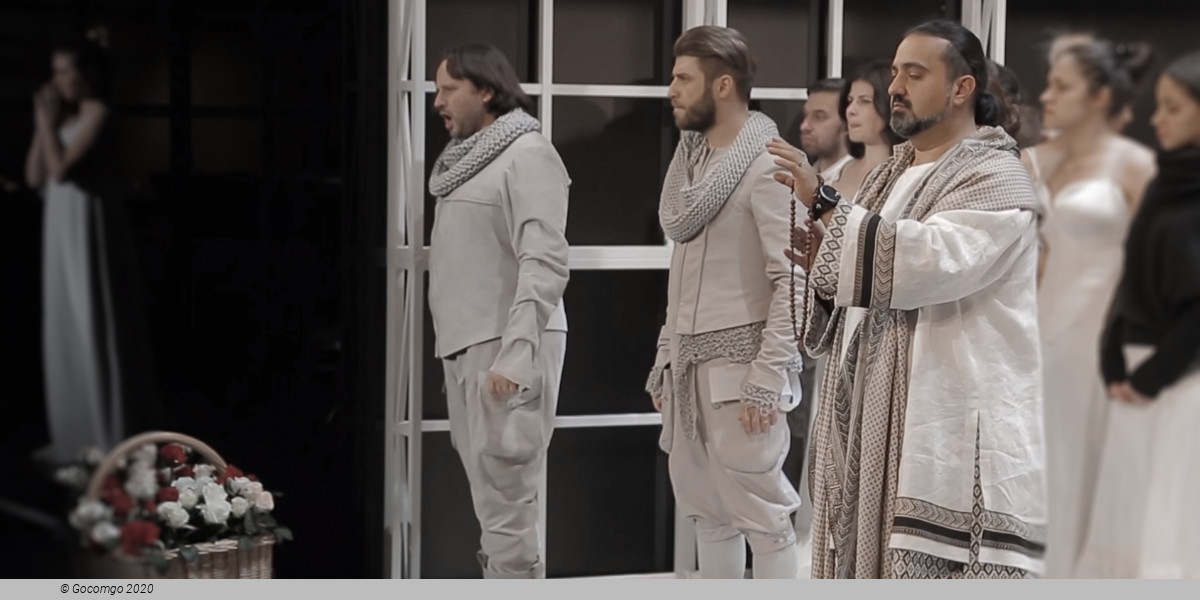
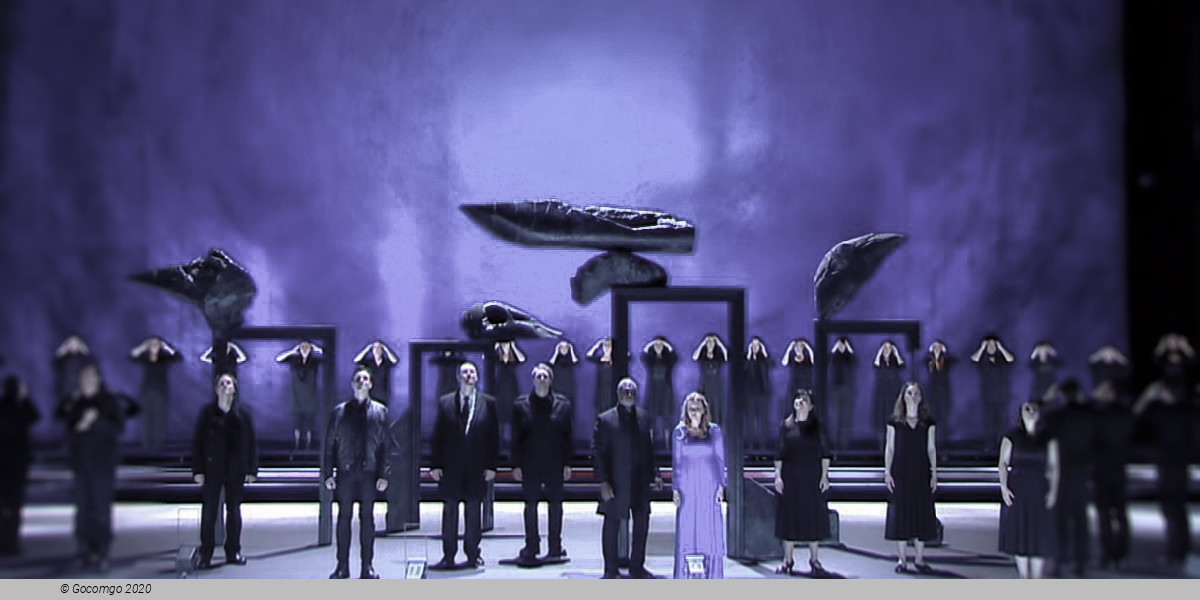
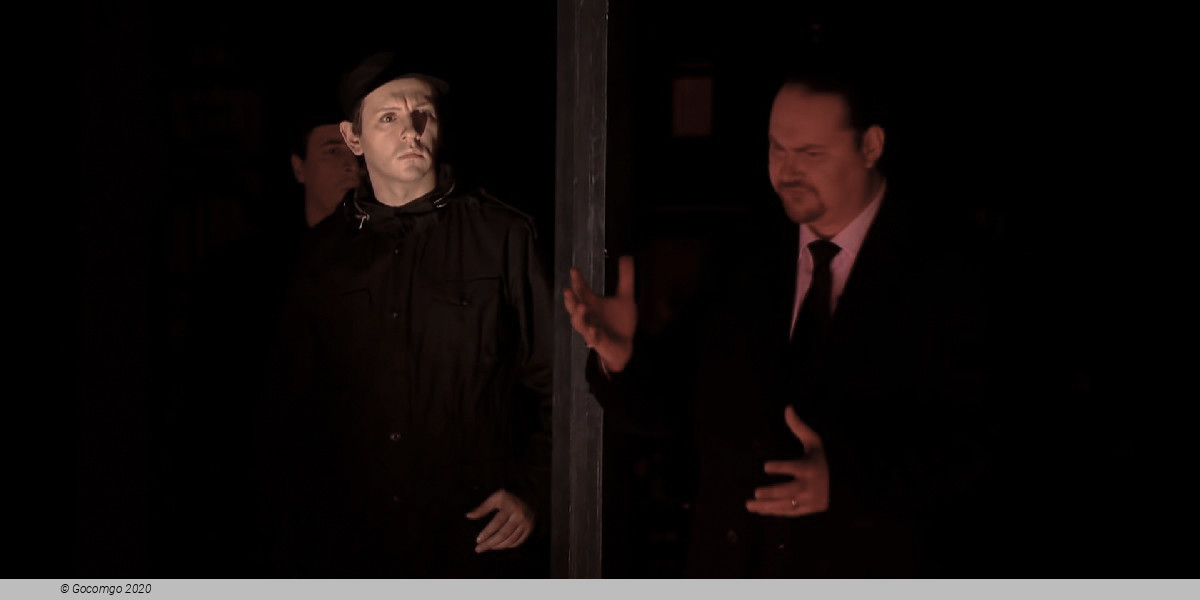
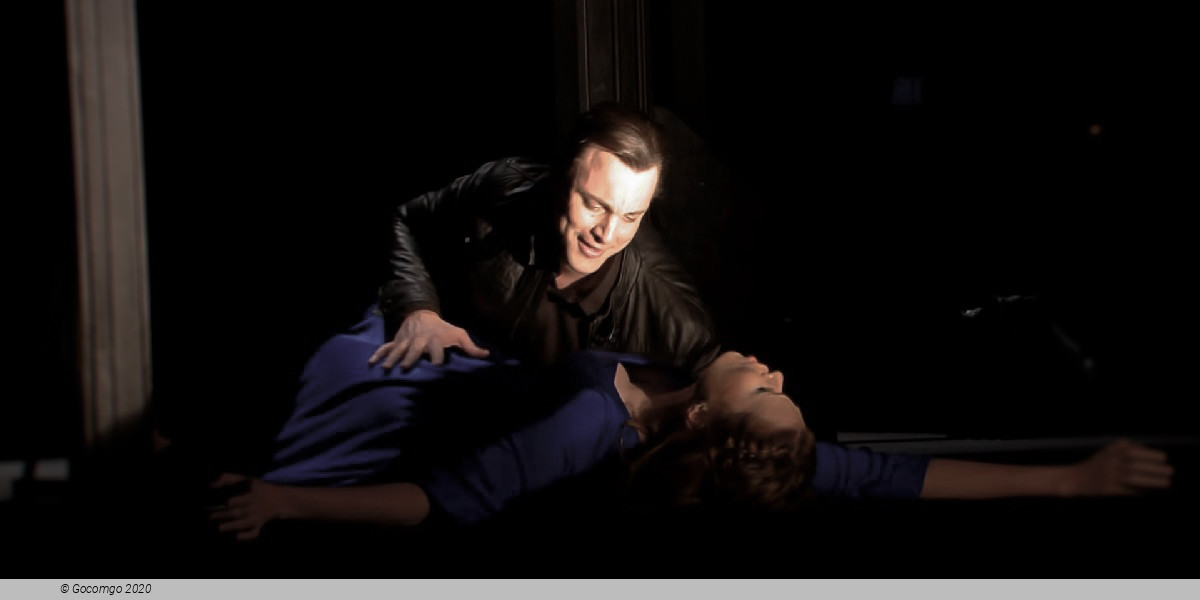
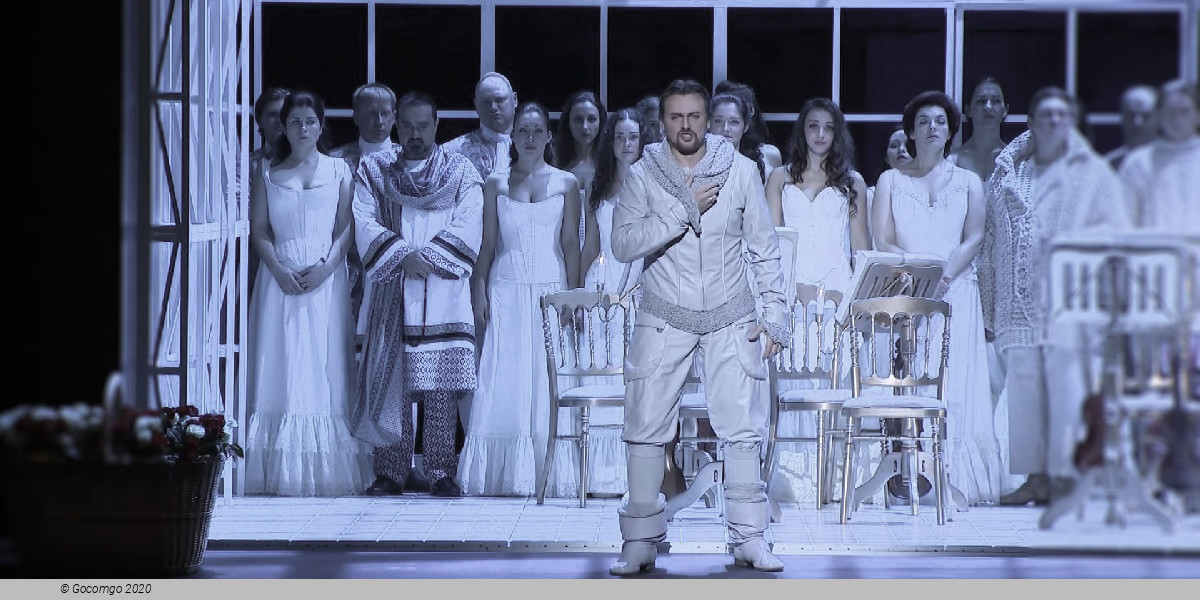
 Teatralnaya Square 1
Teatralnaya Square 1